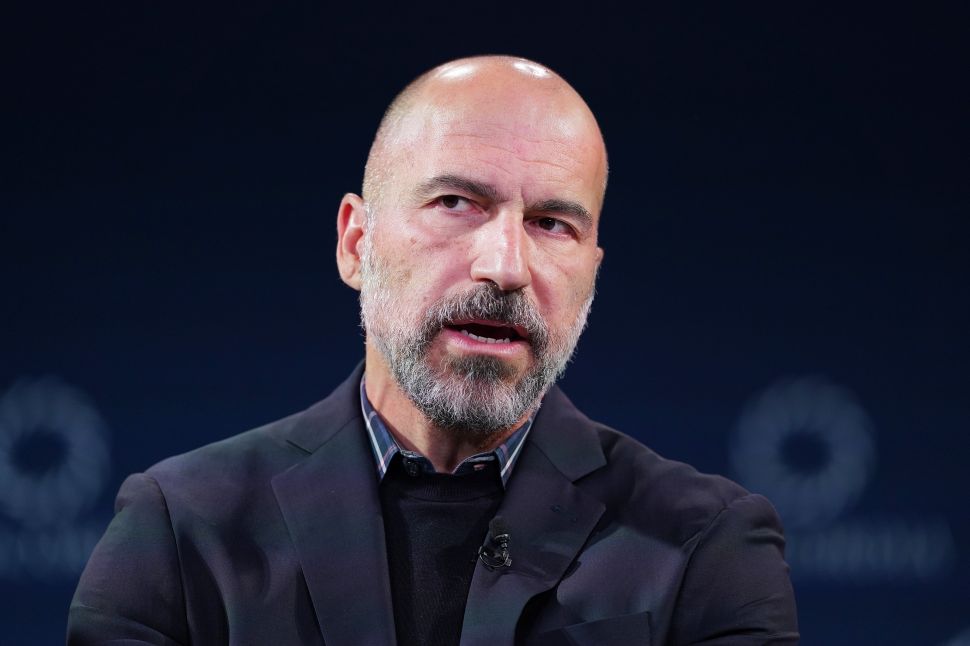Across the U.S., the Trump administration’s global tariffs are starting to affect the automakers, tech giants and even toy manufacturers. But Uber—the country’s market leader in ride-hailing and food delivery—remains an exception, at least for now. “We’re off to a strong start this year against the dizzying backdrop of headlines on trade and economic policy,” Dara Khosrowshahi, Uber’s CEO, told analysts during Uber’s first-quarter earnings call yesterday (May 6).
Shares of the ride-hailing giant slipped 1 percent today after the company narrowly missed Wall Street’s revenue forecast. Uber reported $11.5 billion in first-quarter revenue, a 14 percent increase year-over-year. The company also posted $1.7 billion in profit for the quarter, a notable rebound from a net loss of $654 million during the same period last year.
For the current quarter, Uber expects gross bookings to grow between 16 percent and 20 percent—a sign the company does not foresee major financial headwinds between April and June, Khosrowshahi said.—a sign that Uber isn’t anticipating any major financial headwinds between April and June, said Khosrowshahi.
“We don’t see any signals that I describe as significant,” he noted when asked about broader macroeconomic uncertainty. Uber’s gross bookings from January to March rose 18 percent to $42.8 billion.
Khosrowshahi added that while Uber is monitoring shifts in consumer behavior and demand, the company hasn’t seen any notable changes in spending patterns across its businesses, including Uber Eats. “We’re not seeing trade-downs in terms of the kinds of restaurants that our eaters are eating at,” he said.
One area showing signs of weakness is inbound international travel to the U.S., which has slightly impacted gross bookings per trip, said Uber chief financial officer Prashanth Mahendra-Rajah. Though Uber didn’t specify the cause, the downturn comes amid a broader decline in tourism during the Trump administration’s trade war. In March, the number of visitors from Canada dropped 18 percent, while arrivals from Western Europe fell 12 percent.
On the whole, Uber’s core services are relatively insulated from tariff pressures, according to Khosrowshahi. “Restaurants, transportation, grocery tend to be categories that are quite consistent even during periods of macro uncertainty,” he said. “So I think from a relative standpoint, we’re a little bit less subject to these issues.”

